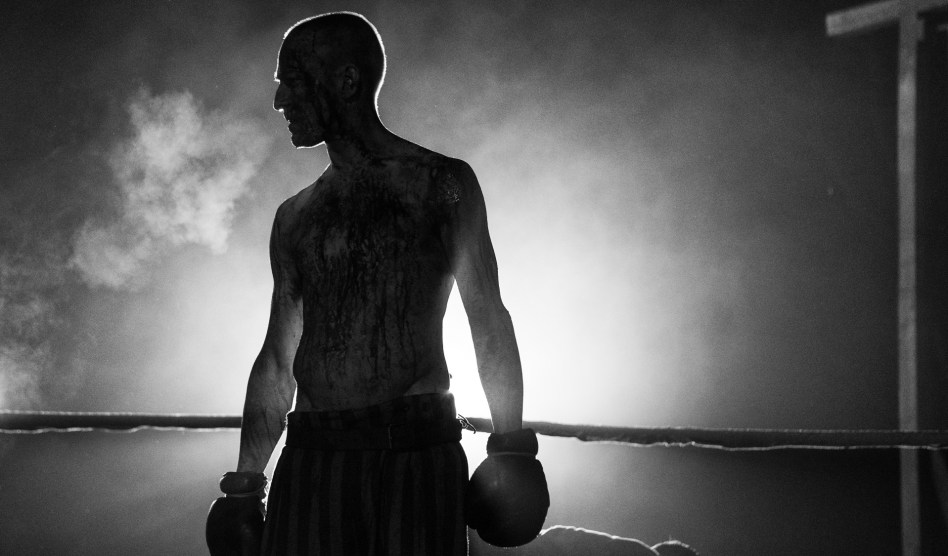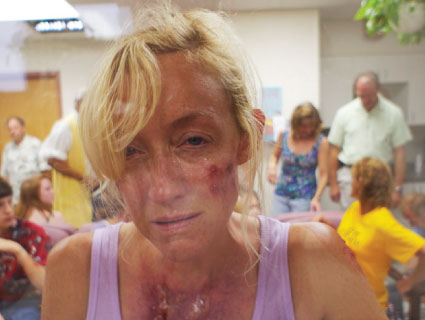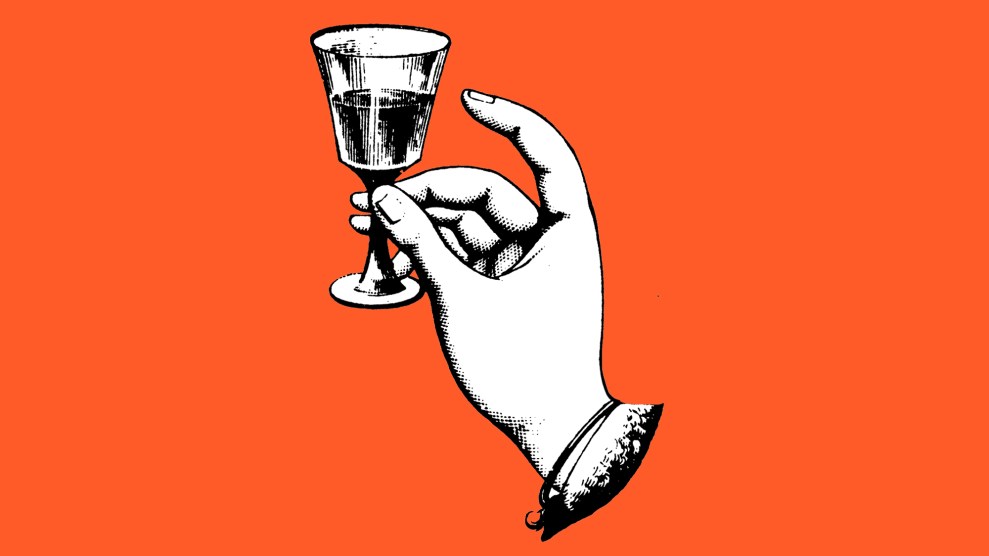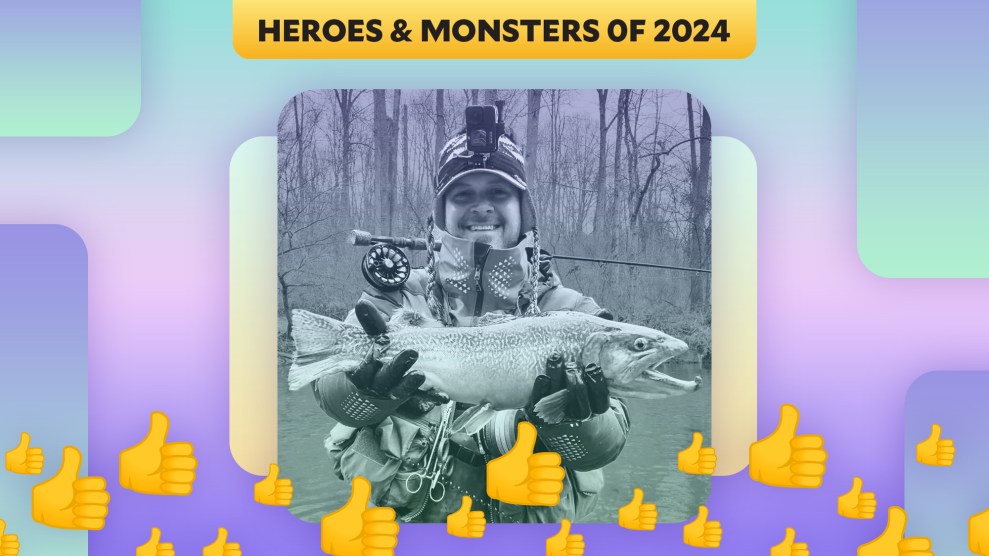
The Survivor/Bron Studios
When Barry Levinson, the veteran film and television director, was about 5 years old, a man appeared at his family’s home in Baltimore. Levinson was told that this fellow was his grandmother’s brother, Symcha Skurnick. The house was small, and Uncle Symcha was given a place to sleep in Levinson’s bedroom. World War II had been over for only a few years, and night after night, his great uncle would scream and talk angrily in his sleep in a language Levinson didn’t recognize. The child couldn’t figure out what was happening, and no one explained it. A dozen or so years passed before Levinson’s mother casually referred to the uncle’s imprisonment in a Nazi concentration camp. He then realized that his great uncle had been tormented by nightmares about that horrific experience.
Levinson remembered Skurnick when three years ago he was given a movie script to read that was based on the true-life story of Harry Haft, a middling boxer in the late 1940s, whose thin claim to fame was that he had fought Rocky Marciano, as Marciano was on his way to becoming the heavyweight champion. Haft was born in Poland in 1925 to a Jewish family, and in 1942 he first was deported to Auschwitz and then sent to the Jaworzno slave-labor camp. There his Nazi overseers trained him to become a boxer and forced him to fight other Jewish prisoners. According to a book written by his son and based on Haft’s account, the stakes were unimaginably high: Prisoners who lost these bouts were executed. By the end of the war, Haft fought and won 76 times before escaping from a death march and eventually immigrating to the United States. He boxed professionally for two years under the nickname the Survivor of Auschwitz.
In a phone interview, Levinson, who directed Diner, The Natural, Bugsy, Wag the Dog, and many other movies, recalled that he had been moved by Haft’s tale of survival and the subsequent challenges he faced living with the immense guilt and trauma of the past: Haft survived only because 76 others died. Levinson took on the project, which would be titled The Survivor. The actor Ben Foster, perhaps best known for his role in Hell or High Water, signed up to play Haft, shedding 60 pounds to shoot the brutal concentration camp scenes. John Leguizamo was cast as Haft’s trainer in America, Danny DeVito as a member of Marciano’s crew who briefly was in Haft’s corner. With a budget of $24 million, the film was shot in 34 days spread out over several months in 2019, mostly in and around Budapest.
At the start of 2020, the film was ready to be released in theaters, but the pandemic intervened, and The Survivor languished as the best Holocaust film that moviegoers couldn’t see. It’s now finally scheduled to have its world premiere at the Toronto International Film Festival on September 13, but its future remains uncertain.
The producers had originally envisioned The Survivor as well-suited for theatrical release. It features vivid and disturbing black-and-white flashbacks to the camps and gruesome depictions of Haft’s boxing matches against his fellow Jews. “It’s a tough piece,” Levinson acknowledges. The movie chronicles Haft’s decades-long effort to come to terms with what had happened at the camp. When his American wife, played by Vicky Krieps, attempts to calm his tortured conscience by telling him he had no choice, Haft doesn’t accept this escape route. “I could’ve said no,” he tells her. “I had every choice.” Haft spends years trying to discover the fate of his pre-Holocaust Polish girlfriend, who was also sent to a concentration camp. “After you survive, how do you live? That’s what resonated with me about this script,” Levinson says.
After deciding to take on this project, Levinson envisioned Foster—to whom he had given his first starring role 20 years earlier, in Liberty Heights—as Haft. The actor read the script and immediately wanted the part. “Barry shaped me as an actor and developed my ability to improvise, adjust in the moment, and pursue the idiosyncratic behavior Barry is known for,” Foster recalls. And the “scope” of the story appealed to Foster: “For over three decades, we’re following a man who is put into a nightmare within a nightmare. That’s a lot of scope.”
The producers informed Foster that he could be “digitally emaciated” for the camp scenes. If that was the plan, he replied, then he was the wrong actor for this project. He insisted on losing the weight. “I wanted the experience of hunger to inform the rest of the story,” Foster explains. “Most hungry people don’t have a choice. So I can’t say this was hard. It was a luxury.” He and Levinson had some history in this regard. About a decade ago, Levinson had contacted him for a role that required he put on 60 pounds. Foster bulked up. “Then the movie fell apart,” Foster recalls. “I ended up overweight, with sciatica and back problems. So if I could go up in weight, I figured I could go down.”
Before filming began, Foster and Levinson visited Auschwitz. “It’s one thing to hear about 6 million dead; it’s another to touch the train tracks,” Foster says. He plastered photographs of the Holocaust in his house, in his trailer on set. His goal was to “get as close to the subject on the inside and out to help transmit the story—which is being erased from our school system these days, while fascist regimes around the world are rising.” Foster, who is now working with Will Smith on Emancipation, an action thriller about a runaway slave who eludes bounty hunters in the Louisiana swamps, had a tough time after spending months as Harry Haft and working on the set in Hungary that recreated the Jaworzno camp. “Coming home after wrapping,” he says, “I had nightmares for months.”
The producers are optimistic about the movie and consider it awards material—particularly for Foster’s intense performance as Haft. (Levinson won an Academy Award in 1989 for directing Rain Man.) When it was completed, the film was screened for the USC Shoah Foundation, which filmmaker Steven Spielberg founded in 1994 to record interviews with Holocaust survivors and witnesses. The foundation, which had assisted Levinson and his team during the production of the movie, agreed to sign on as a producer. “I hadn’t cried at a Holocaust movie in years,” says Stephen Smith, the group’s executive director, “and this brought me to tears several times. It is one of the best contributions to Holocaust filmography since Schindler’s List.”
Early in the project’s history, Smith had been contacted by Matti Leshem, one of the film’s producers, who asked if the foundation could help ensure the movie’s authenticity. Leshem’s father was a Holocaust survivor who as part of the Czech resistance had forged working permits for Jews. His grandmother had perished in Auschwitz. He had long been looking for a new and different way to approach the Holocaust. When in 2017 he read the script for The Survivor, written by Justine Juel Gillmer, he realized it explored new territory: “I thought I had heard all the Holocaust stories. The fact that [Haft] survived and had to make a horrible choice…was inspiring and important.”
Leshem asked Smith if the foundation could search its vast archive of interviews and locate video footage of survivors from the same region as Haft, so that Foster and the other actors could master the accent. Smith entered Haft’s name into the foundation’s database and found that it had conducted an interview with him before he died in 2007. Subsequently, the foundation aided Levinson and his crew with other historical details: the uniforms and shoes worn in the Jaworzno camp, the buildings there, the fencing that surrounded the facility.
Smith notes that the Shoah Foundation, while often involved with documentaries, is usually wary of collaborating with feature films: “That’s storytelling, and the director has the right to artistic license. That often rules us out because liberties are taken that don’t conform to history.” For instance, according to Smith, the foundation wouldn’t work on The Zookeeper’s Wife, the 2017 film starring Jessica Chastain based on a nonfiction book about a couple who hid Jews in their Warsaw zoo during World War II, because of the film’s inaccuracies. (“Jews were not wearing yellow stars before World War II,” Smith exclaims.)
In determining whether to become part of the Haft project, “we agonized over the script,” Smith says. “Some elements were totally fabricated.” The Nazi guard who trains Haft is a composite figure, and certain details of Haft’s camp experience could not be confirmed. But with Levinson casting the camp scenes as Haft’s recollections, not as the absolute truth, the foundation did not have to endorse those flashbacks as a completely accurate account. “The movie is largely about a man struggling with this memory,” Smith explains. “The vulnerability of this man, this survivor, is beautifully and accurately portrayed.” Smith credits Levinson for treating the historical details with care. “The points we addressed were taken seriously.”
When the coronavirus pandemic struck, Levinson and the producers were unable to test The Survivor before an audience, and there were no distribution deals to be made. With theaters out of the picture, the producers approached streaming services. Though consumers were gobbling up movies and other video content at home, not one grabbed it. “I was surprised it was not picked up,” Smith says. “I just assumed it would be. It tells a good story, and it’s not a story people are familiar with. But there is some Holocaust fatigue.”
“The streamers told us it doesn’t fit what we’re doing now,” Levinson recalls. “They said, ‘It’s great. It will be nominated. Ben Foster will be nominated. But it doesn’t match our platform.’ It was bizarre.” Levinson concedes the material can be difficult to watch. The camp scenes are harrowing; the boxing sequences in the United States are visceral. But he is quick to point out that there are “quiet romantic aspects” in the film, which explores how trauma intervenes in relationships. “The movie is not in a dark spot all the time,” he says. “It ends up with a hopeful message.” And—spoiler alert—it concludes with a good joke about a mother and God.
Though the film may be well-received in Toronto, Levinson cautions that Hollywood will likely remain unsure about what sort of movies audiences want to watch after over a year of lockdown and isolation and about who will return to the theaters. “You might think people want lighthearted films,” he observes. “But after World War II, The Best Years of Our Lives [a grim tale of G.I.s returning to civilian life] won Best Picture.” Leshem notes there is now a backlog of films for theatrical release, and it could be hard to get The Survivor into theaters this fall in time for next year’s awards season. “We still haven’t seen a really good, serious film like this come out and do well,” he says. “But my sense is people are hungry for good material.”
As Levinson talks about the film, he expresses frustration but acknowledges, “We just got caught between things.” He recalls that at one point the producers tried to place the film in the Berlin International Film Festival and were turned down. “We were told it might be too upsetting to the German audience,” Levinson recalls. “Really? I don’t know what to say to that.”














